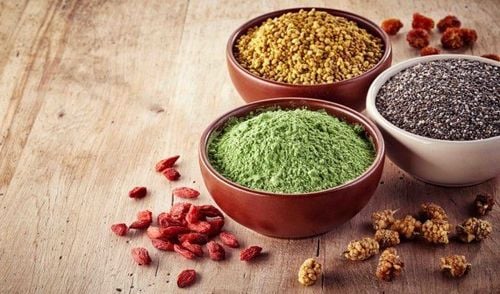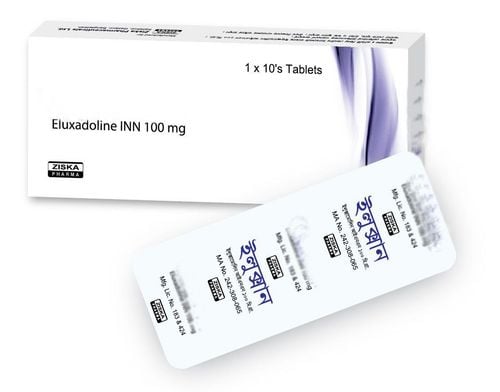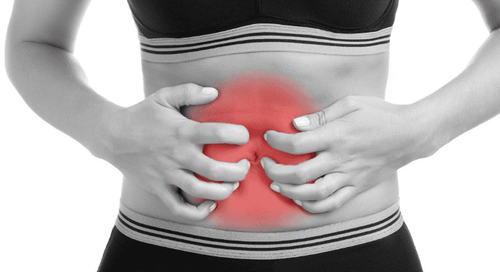This is an automatically translated article.
The article is professionally consulted by Master, Doctor Vu Huy Binh - Department of Medical Examination & Internal Medicine - Vinmec Hai Phong International General Hospital.Irritable bowel syndrome is a common digestive disease, causing many painful and uncomfortable symptoms for patients. Irritable bowel syndrome eat what? Accordingly, patients need to adhere to a scientific diet to support effective disease treatment.
1. Irritable Bowel Syndrome Overview
Irritable bowel syndrome is a chronic, recurrent gastrointestinal dysfunction. The causes of the disease are diverse: enteritis caused by eating contaminated food, intestinal motility disorders, using a lot of intestinal antibiotics causing bacterial dysbacteriosis, mental disorders, drinking a lot of alcohol,...Million Typical symptoms of irritable bowel syndrome are long-term digestive upset and abdominal pain. Patients often experience some problems such as abdominal distention, diarrhea, constipation, more frequent bowel movements than normal people, blood in the stools, etc. Besides, patients often have abdominal pain. colon, the abdominal pain is on both sides of the ribs, a lot of pain after eating, after eating hot spicy food, cold food, raw vegetables, blood soup, ... or when stressed. In addition, the patient may also experience fatigue, headache, trouble sleeping, anxiety, ...
2. What is the best food for irritable bowel syndrome?

Choose clean, safe food that does not contain chemicals and preservatives. Increase the addition of high-fiber foods such as green vegetables, fruits, fruits (especially potassium-rich fruits such as bananas, papayas, ...) and cornstarch, rice bran into the diet. Fiber may improve symptoms of constipation in people with IBS. Fiber softens stools, helping stools move smoothly through the colon. Adults should consume about 21-38g of fiber per day. However, fiber can create gas, causing bloating, so patients should increase the amount of fiber slowly, just add 2-3g per day. Maintain a balanced diet, eat low fat and high in carbohydrates, for example pasta, rice, whole grain bread,... It is recommended to eat several small meals a day, about more than 2 hours should eat one meal. meals because eating a lot of food in one meal can cause stomach cramps and diarrhea. When eating, you must eat slowly, chew thoroughly to limit swallowing gas, reduce bloating, gas, and reduce the sudden stretch of the digestive tract. As a result, this helps limit the stimulation of intestinal contractions, reduces the number of bowel movements and effectively relieves pain.
3. Irritable bowel syndrome what to eat?
What should people with irritable bowel syndrome avoid? They are:Raw food such as raw vegetables, blood pudding, fish salad. Pickled cucumbers, spicy and sour spices. Dried fruits, canned fruits because they are high in sugar, are easy to cause constipation, diarrhea and bloating in people with irritable bowel syndrome. Foods with a high fat content, such as fried foods, stir-fries. Foods rich in animal fats can cause the intestines to contract more, causing pain and discomfort in the abdomen. Animal fats should be replaced with plant-based unsaturated fats. Patients should avoid processed meats such as sausages, pate or biscuits, mayonnaise, cheese, etc. Foods that cause gas such as beans, cabbage, green vegetables, onions. Stimulants such as alcohol, tobacco, coffee. Dairy products because milk contains lactose is difficult to digest, causing diarrhea, abdominal cramps or constipation. Sour fruits because they have a lot of acid, not good for the digestive tract. Do not eat too much in the evening, do not eat foods with too many nutrients because it will make the digestive system work overload, causing abdominal pain and diarrhea. When having diarrhea, people with irritable bowel syndrome should completely avoid insoluble fiber such as cellulose so as not to rub the intestinal wall. Food to which the patient is allergic.
4. Adjust your lifestyle when you have irritable bowel syndrome
In addition to adjusting the diet, people with chronic irritable bowel syndrome should change bad habits in life to reduce the harmful effects of the disease. Some important notes are:Avoid overwork, anxiety, insomnia, prolonged nervous tension. Always happy, comfortable, healthy living, no need to worry too much about your illness. Should practice stress reduction methods such as exercise, meditation, yoga or choose suitable forms of exercise, easy to do. Maintain a regular routine of living and resting on time. Patients should use the palm of their hand to gently rub around the epigastrium - navel in a clockwise direction several times a day to stimulate bowel movements. Practice defecation once a day in the morning or at an appropriate time, should rub the abdomen before going to the toilet. In addition to maintaining a healthy diet, customers should go for regular check-ups every 6 months or when there are signs of irritable bowel syndrome for definitive treatment right from the start, so that the disease does not progress to chronic. .
Please dial HOTLINE for more information or register for an appointment HERE. Download MyVinmec app to make appointments faster and to manage your bookings easily.














